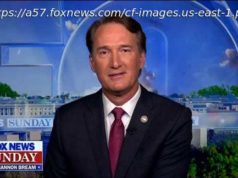 HONG KONG — In the Philippines, nationalists rallied outside the United States Embassy in Manila, setting fire to an American flag with a picture of President Trump’s face. In China, state media highlighted the “violent” protests that accompanied his inauguration.
HONG KONG — In the Philippines, nationalists rallied outside the United States Embassy in Manila, setting fire to an American flag with a picture of President Trump’s face. In China, state media highlighted the “violent” protests that accompanied his inauguration.
And in Germany, the vice chancellor warned of a “drastic radicalization” in American politics and said Berlin stood ready to fill the void left by an isolationist Washington.
In countries around the world, alarmed reactions greeted Mr. Trump’s ascent to power and his inaugural pledge: “From this day forward, it’s going to be only America first.” But some world leaders embraced the new reality, seeking to accommodate a galvanizing political force whose message has been echoed in mass movements across continents.
Prime Minister Shinzo Abe of Japan, who was the first world leader to meet with Mr. Trump after his election in November, said he hoped to hold a summit meeting with the new president as soon as possible. He called Japan’s alliance with the United States an “axis of Japan’s foreign and security policies,” even though Mr. Trump was vocal as a candidate in attacking Japanese trade practices and questioning American military support for the country.
But in Berlin, where Chancellor Angela Merkel’s government has been rattled by anti-immigrant discontent before upcoming elections , Sigmar Gabriel, the vice chancellor, said there were “highly nationalist tones” in Mr. Trump’s speech, which he said reflected a “drastic radicalization” of United States politics. ”You have to take the man seriously,” Mr. Gabriel said.
He said that if Mr. Trump made good on his pledges to rip up trade deals and disregard longstanding alliances, Germany stood ready to fill the void.
“Should the United States start a trade war with China and all of Asia then we as Europeans and Germans are fair partners,” Mr. Gabriel said. “Europe and Germany need a strategy geared toward Asia and China — and we have new opportunities.”
President François Hollande of France, battling nationalist currents in his own country, did not wait for Mr. Trump to give his address before suggesting that France’s course would divert from Washington’s new direction.
“We are in an open world economy and it is not possible nor advisable to want to be isolated from the world economy,” he said. “We must not imagine France closed with respect to the rest of the world.”
“This would mean the loss of jobs, the loss of skills and the loss of development for our economy,” he said.
Others were struck by the dark tones of Mr. Trump’s speech on Friday. In Japan, Goro Hashimoto, a special editor at the right-leaning Yomiuri Shimbun, the world’s largest-circulation newspaper, compared Mr. Trump’s speech to President John F. Kennedy’s inaugural address — and not favorably.
“When I heard Kennedy’s speech when I was a child, I was so excited,” Mr. Hashimoto said. “He talked about American values as well as the benefits for the world. Trump didn’t talk in that way.”
In Beijing, Mr. Trump’s swearing-in took place at 1 a.m. Saturday local time, and well into the day, there was no official reaction to his inaugural address from a government whose statements are tightly scripted. Hours before the inauguration, on Friday afternoon, a government spokeswoman had repeated standard boilerplate about the importance of bilateral relations between China and the United States, even though Mr. Trump and his cabinet picks have been sharply critical of Beijing.
Relations “have had their ups and downs, but they have continued to move forward,” Hua Chunying, a spokeswoman for China’s Foreign Ministry, told reporters . “China-U. S. relations should push forward from this new starting point to make greater progress.”
Hours after the inauguration, Ms. Hua’s comments were posted online in English by People’s Daily, the mouthpiece of the Communist Party.
While China’s reaction was muted, Taiwan’s president, Tsai Ing-wen, was quick to offer her congratulations to Mr. Trump.
“Democracy is what ties Taiwan and the U. S. together,” Ms. Tsai tweeted within a minute of Mr. Trump’s swearing-in. “Look forward to advancing our friendship & partnership.”
Last month, Ms. Tsai called Mr. Trump to congratulate him on his victory, the first leader of Taiwan to directly communicate with a United States president or president-elect in decades. The United States does not have formal diplomatic ties to Taiwan, which China considers its own territory, and the phone call elicited strong criticism from Beijing.
Until this month, Ms. Tsai had not used her Twitter account in more than two years.
Other leaders and politicians were also effusive. In Australia on Saturday, Prime Minister Malcolm Turnbull of Australia, whose government has banished refugees who tried to reach Australia by boat, took to Twitter to wish Mr. Trump “every success” and predicted “a great future ahead of us.”
And in Brazil, an ultranationalist legislator, Jair Bolsonaro , expressed glee over the inauguration.
“Congratulations, new president of United States of America,” Mr. Bolsonaro, a conservative former army paratrooper who is preparing his own presidential bid in the 2018 election, said on Twitter.
But others in Brazil saw ominous signs for the future.
“We can root for the possibility that Trump is merely trying to bluff the world with his offensive rhetoric on trade and global elites,” said Marcos Troyjo, a Brazilian economist and diplomat who writes on international affairs for the newspaper Folha de S. Paulo. Still, Mr. Troyjo said that Mr. Trump’s first moves as president signaled that he was already creating a “stockpile of uncertainty and turbulence.”
“Time to buckle your seatbelts and cross your fingers,” Mr.






